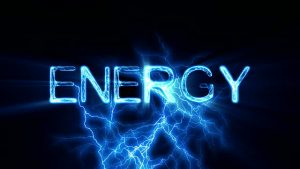It’s one of the most intangible pieces of direction we get as voice actors: energy. What does it mean? Where does it come from, and how do we know if we have correctly judged the buyer’s meaning? More importantly, how do we add energy to reads that demand it?
When I see the word ‘energy’ offered as a direction point, it tells me that the buyer is looking for someone who is engaged with the copy. One of the great challenges we face as voice actors are connecting with copy that is often boring or full of promotional hype. Even the most conversational and authentic commercials usually end up with some sort of pitch along the way. It’s what we do, and even the best actors among us can struggle to stay motivated when we are faced with price points and hyped-up adjectives.
A frequent mistake that I see talent make is equating volume with energy. I’ve directed many sessions where I have asked for more energy, only to wind up being shouted at. NO ONE LIKES SHOUTING! Be careful not to misinterpret a request for more energy as a request for loudness. They are not the same thing. Moreover, that fancy mic that you and your audio guru of choice have perfectly dialed in is going to pick you up just fine….there’s no need to get aggressive. The mic is not impressed.
Other talents will take direction for more energy and try to get there with inflection, usually raising certain words in order to create a more energetic feel. In occasional small doses, this can be effective, but more often than not it results in a sing-songy delivery that becomes predictable and monotonous. It can even get a bit announcery if words are stretched in the process.
What’s the right way to do energy? Two elements that will help make your reads more authentically energetic are pacing, and most importantly, smile. Pacing requires care because if it becomes too fast it just sounds rushed, but if you are being directed to be more energetic, try kicking the pace up ten or fifteen percent. Then, if appropriate given the content, add some genuine smile. Be careful not to go overboard and become saccharine, but a well-judged smile will add real energy to your delivery as your body loosens up and you start to have more fun. Physicality always adds energy to reads, and smiling is just another element of physical delivery.
Looking to add energy? Add a smile and a little tempo, and don’t use volume or inflection as crutches, and you’ll be on the right track.
Happy voicing!



Energy is a result of internalized emotion. High energy is often a response to excitement, thrill, joy or passion. Low energy can be a response to sadness, confusion, fear or tension. Regardless, all emotion begins with a thought. The thought moves through physical expression (smile, frown, wide eyes, gestures, etc.). The thought is also expressed through tempo and rhythm in delivery. Higher energy is usually expressed with a quicker tempo, but depending on the context, a slower tempo might be more appropriate. When the thought is in alignment with the context of the message (or script/story), the energy will be natural and believable. We adjust the energy of our conversations instinctively every day.
Our challenge as voice actors is to speak with believable and compelling energy while reading from a script. That takes some acting skill. Adjusting tempo and adding a smile are a great start to upping energy in your delivery. Another tip is to look for the positives and negatives in the script/story. Then find something in your personal life experience that is similar to, or that you can relate to the message in the script you are reading. Allow yourself to re-experience that moment from your past and notice where the emotion from that experience lives in your body. A bad experience might exist as knots in your stomach or tension in your arms or hands. A joyful, fun experience might exist as a big smile, wide eyes or even goose bumps. Once you've found that physicality from your past, use it as you deliver your script – speak from that emotional place. Keep the emotional tension throughout your delivery – or modify as needed as the script/story evolves. You may be amazed at how it changes your energy.
James Alburger